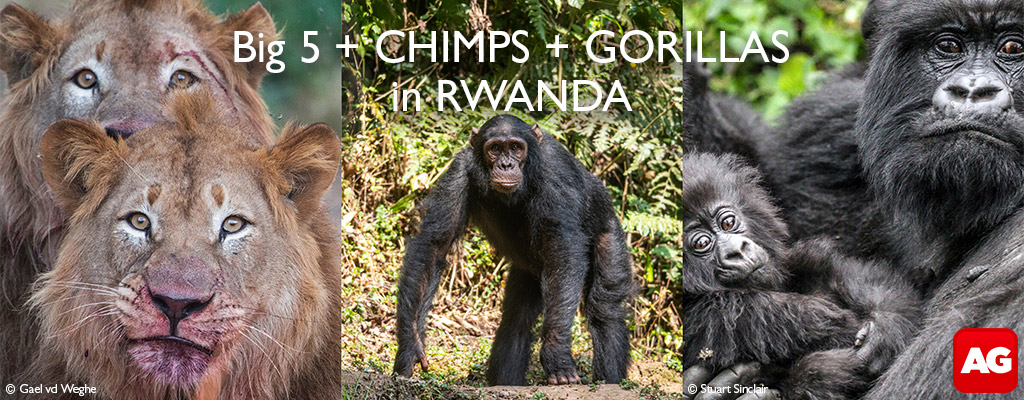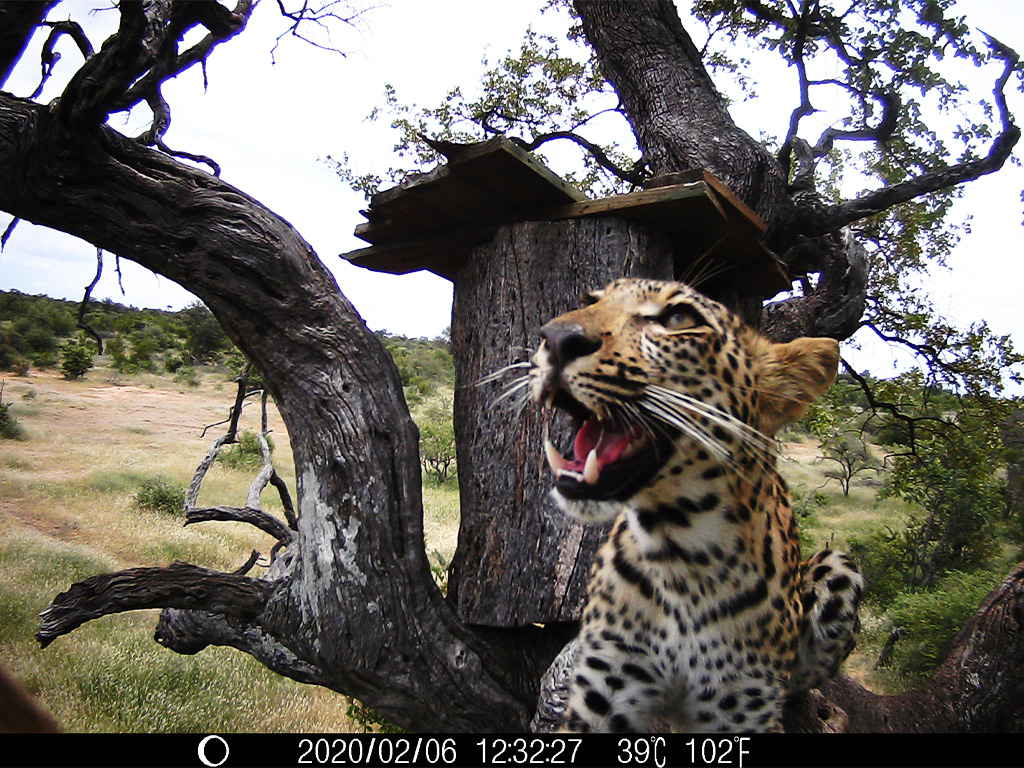
Camera trap footage has confirmed what has long been suspected but never before proved – leopards raid the nests of southern ground-hornbills. The footage shows the predator climbing into a tree with an occupied artificial nest and, despite the best efforts of the adults, climbing into the nest. The footage can be viewed here – watch for the leopard hissing at the frantic adult birds:
Ground-hornbills are endangered within South Africa, and The Associated Private Nature Reserves (APNR) in the Greater Kruger has been home to a research project for the past 20 years. Run by the FitzPatrick Institute of African Ornithology (University of Cape Town) and funded through a National Geographic grant, the APNR Ground-Hornbill Project has been researching and conserving southern ground-hornbills in an attempt to increase our understanding of the species and help to slow and reverse their decline in numbers. The birds naturally nest in large tree cavities; however, habitat loss has resulted in a shortage of nesting sites within the region. One of the earliest tasks for the project was to install artificial nests throughout the reserves – to provide these large birds with the opportunity to breed. This aspect of the project has been a massive success.
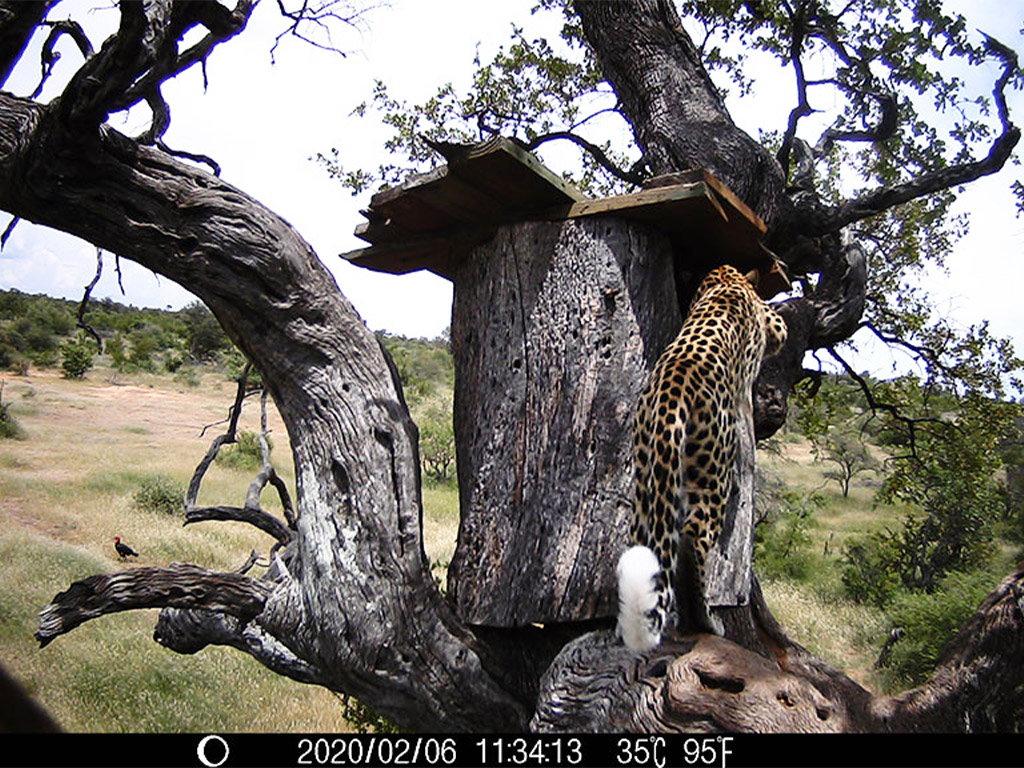
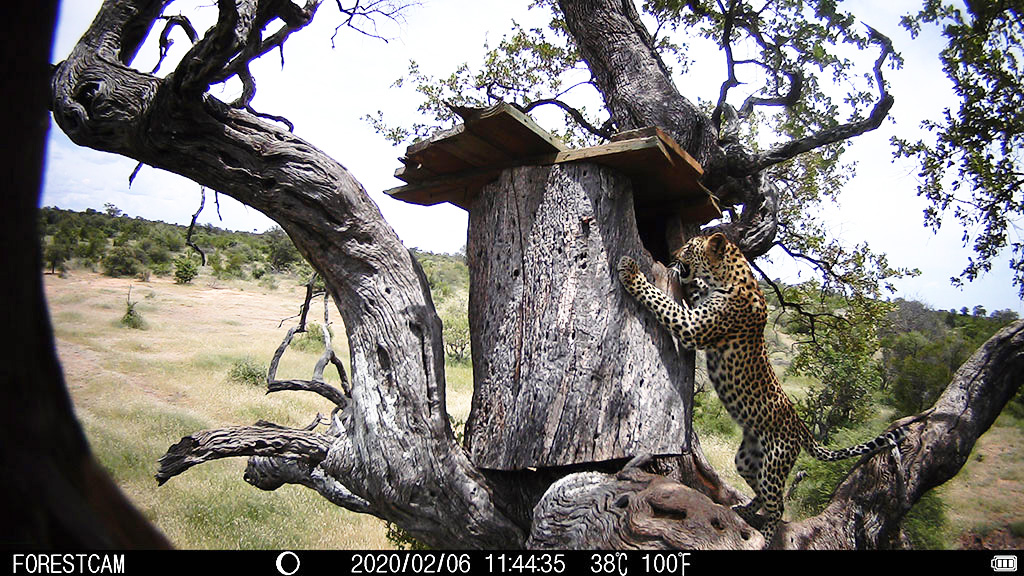
One of the best ways to unobtrusively monitor which birds are breeding and what is happening at the nests is through the use of camera traps. These cameras provide vital information about the breeding of the birds and about which group members are contributing towards the incubating female and growing nestling. This ultimately provides us with a deeper understanding of the social structure within the species.
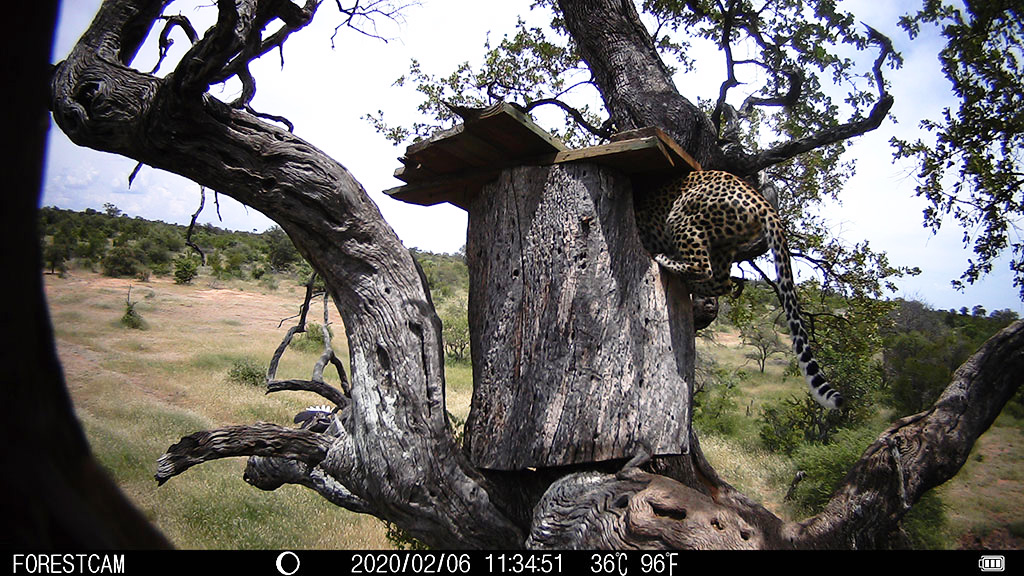
While cameras help us improve our knowledge, they also provide insights previously assumed, yet unconfirmed, such as the idea that predators take advantage of defenceless nestlings. Recently, a camera located inside Klaserie Private Nature Reserve caught one of the culprits – a leopard. The footage shows the agile and inquisitive leopard raiding the nest while the adult birds remain nearby alarm-calling and swooping past the nest, trying to distract the predator. It is not unusual for ground-hornbill breeding attempts to fail, and while it has always been assumed that leopards are one of the main culprits, the event has never been captured on camera and confirmed.
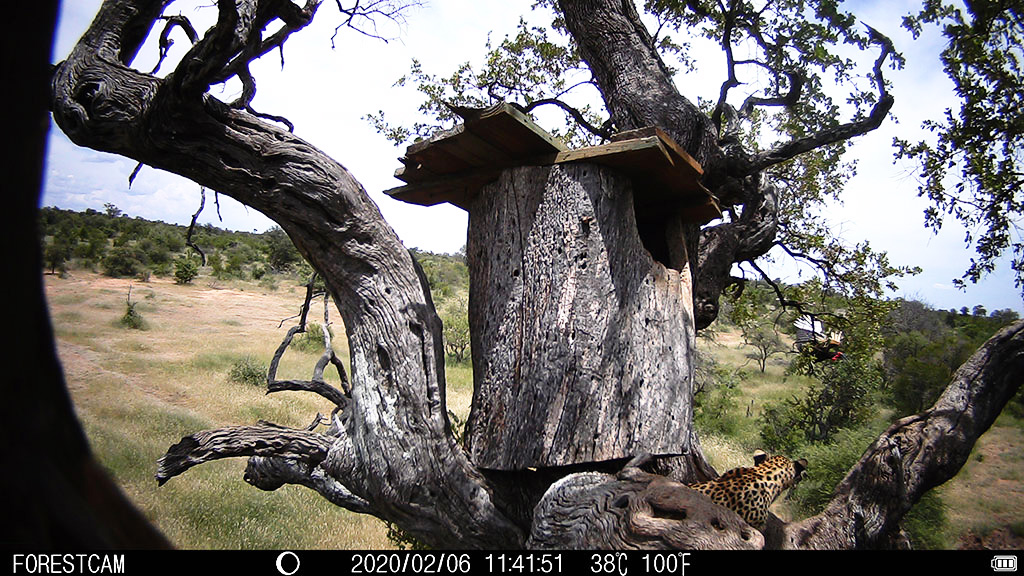
While this was obviously an unfortunate outcome for this endangered bird, it has provided us with some much-needed proof of what is preying on the species.
If you are interested in finding out more about the APNR Ground-Hornbill Project, check out the Facebook and Instagram pages. Otherwise, if you have any questions, contact them via email on nghututu@gmail.com. If you would like to contribute towards nests or cameras at the nests, please consider donating via their gofundme page.

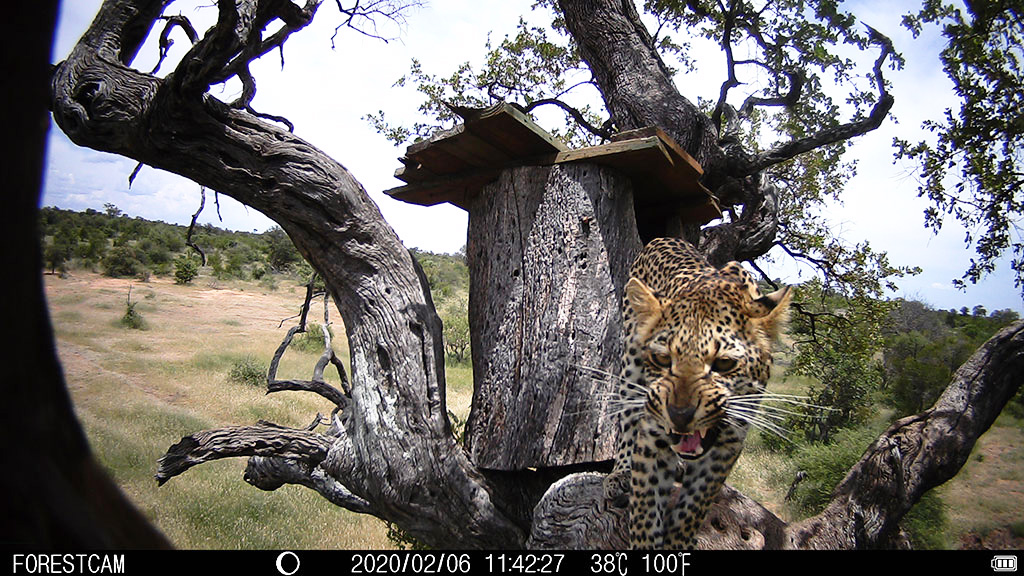
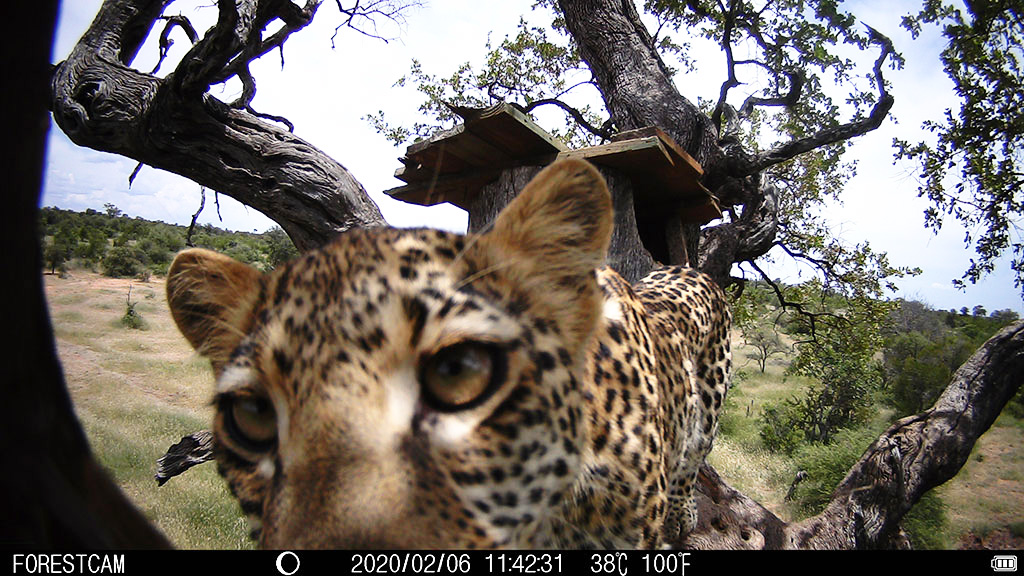
To comment on this story: Login (or sign up) to our app here - it's a troll-free safe place 🙂.![]()

